Fear is an integral component of most mysteries and thrillers. Sometimes the characters are afraid, sometimes the reader is, and sometimes it’s both. But with the mysteries and thrillers on this list, fear functions in a particular way.
More specifically, fear in these mysteries and thrillers is linked to race, either in the form of racism or even cultural difference. Regardless of the guise it takes, each of these books wields fear in an intriguing way connected to issues around race or ethnicity.
In a way, it makes sense: we are living during a time when the U.S. (among other places) is grappling hard with its own systemic racism. Whether you understand our current moment as a settler-colonial reality (as per Roxanne Dunbar-Ortiz’s Not a Nation of Immigrants: Settler Colonialism, White Supremacy, and a History of Erasure and Exclusion) or the manifestation of a racial caste system (as per Isabel Wilkerson’s Caste: The Origins of Our Discontents), the fact remains that race is a central concern today (not that it hasn’t been before).
However, the books on this list explore race through fiction. They have just as many ideas, histories, and theories embedded in them as the rich tapestry of nonfiction work being published on race right now, they just happen to use fear as the inroads into such ideas.
Just as Claudia Rankine works to open up space for dialogue about race and racism in Just Us: An American Conversation, so do all of these books tap into the potentials of genre — specifically, mysteries and thrillers — to create space for reflection (and maybe a conversation or two). I hope you enjoy them as much as I do!
Murder on the Red River by Marcie R. Rendon
Cash Blackbear is only 19 when an unidentified Native woman is discovered dead after a recent flood. Cash, who is Ojibwe, is determined to figure out what happened to the unknown woman. This means she has to return to the White Earth Reservation in her quest for justice, and when another Native woman dies, the urgency to solve the crime increases. In addition to the complex mystery at the novel’s core, there’s so much packed in here about indigeneity, colonialism, gender, and violence. Bonus: If you like Murder on the Red River, you’ll be happy to know it’s the first in the 3-book Cash Blackbear Mystery series (the third of which, Sinister Graves, is due for release this October).
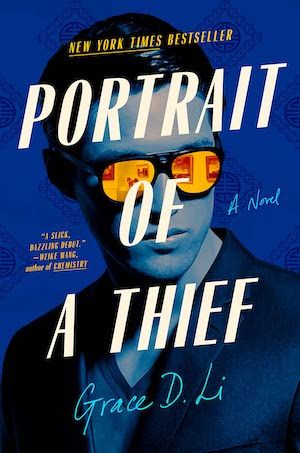
Portrait of a Thief by Grace D. Li
Grace D. Li turns the model minority stereotype on its head through Will Chen. He’s a student at Harvard and is basically the perfect son…until he gets a job offer: an illegal job offer to steal back five pieces of Chinese art stolen from Beijing centuries ago. The crew he puts together is composed of other Chinese Americans like Will: success stories who appear, on the surface, to fit the model minority bill. But as the novel progresses, Li reveals the complexities of navigating one’s identity as an Asian American. The stakes are incredibly high for each of them, and the story is a riveting thriller. As the plot unfolds, the story grapples with Asian American identity and histories of colonialism.
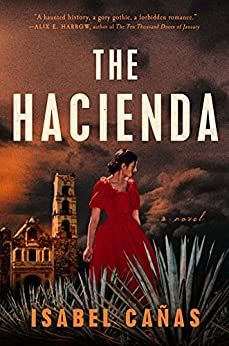
The Hacienda by Isabel Cañas
Isabel Cañas’s new novel has it all: a haunted hacienda, untimely deaths, governmental upheaval. It follows Beatriz in the aftermath of her father’s death in the war for Mexican independence. Already there’s an engagement with racism and colonialism at play. When Beatriz receives a marriage proposal from Don Rodolfo Solórzano — a proposal that could lift her and her mother out of their newfound low position in the community — she jumps at the opportunity. However, when she arrives at her new husband’s hacienda she is greeted by his abrasive sister and the unfriendly staff — oh, and whispers of his late wife’s suspicious death. Beatriz has to figure out what happened to her predecessor before she is subject to the same fate. The Hacienda is as much a historical novel with an underlying political commentary as it is a thriller with a good mystery at its core.
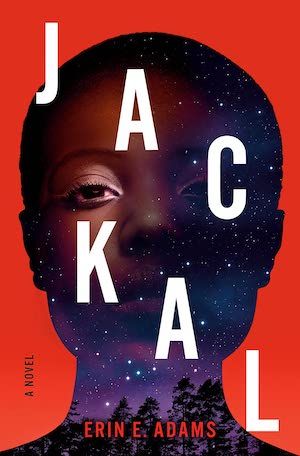
Jackal by Erin E. Adams
Returning to her small-minded hometown in Pennsylvania isn’t high on Liz Rocher’s list, but it’s a must-do for her best friend’s wedding. It doesn’t help that said small-minded hometown is predominantly white and Liz is Black. But what really makes things worse is when Caroline, the bride and groom’s daughter, disappears during the wedding leaving only a bloody cloth behind. As it turns out, Caroline’s not the first child to go missing in Liz’s hometown. Or the first girl. Or the first Black girl. Liz’s hometown has a serious problem…and it’s up to Liz to figure out what’s really happening before it’s too late for Caroline.
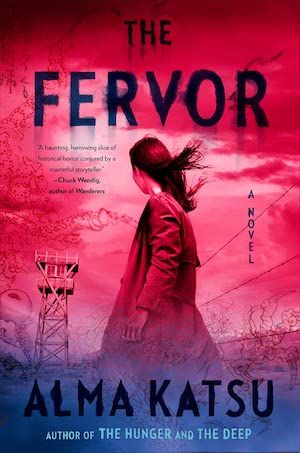
The Fervor by Alma Katsu
The backdrop: World War II. The premise: Meiko Briggs and her American-born daughter, Aiko, are living in a Japanese internment camp, having been ripped from their homes by the U.S. government. The freaky part: there are demons on the loose! Yup, you read that right. Demons. It’s not obvious at first, because it initially begins as a minor cold making its way through the camp. But then those who fall ill become violent and some die. Meiko and Aiko start their own investigation after the team of doctors the government brings in turns out to be almost as menacing as the disease they’re supposed to treat. The illness takes on larger symbolic significance when considered in light of the context of Japanese internment. Katsu’s novel raises questions around racism and humanity.
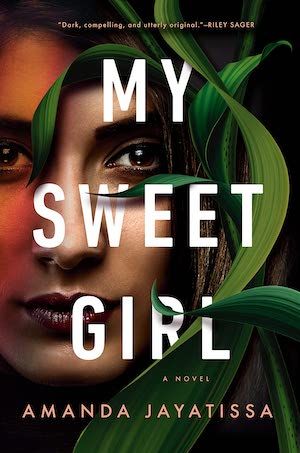
My Sweet Girl by Amanda Jayatissa
My Sweet Girl is the story of Paloma, a Sri Lankan adoptee struggling with mental health…and a bad roommate. When she first rents a room in her Bay Area apartment to Arun, an undocumented Indian immigrant, she never suspects that he’ll end up blackmailing her. But when she comes home to find him violently murdered in her apartment, things go from bad to worse. And it doesn’t help that when the police arrive, Arun’s body (and all that blood) is gone. Paloma is left to try to figure out what happened before whoever killed Arun comes after her. Along the way, her past (the subject of the blackmailing) is slowly excavated, bridging the temporal and geographical divides that separate Paloma’s life in the U.S. and her roots in Sri Lanka. Her adoptive parents, wealthy white philanthropists, are at the center of all the questions Jayatissa’s novel raises concerning race, privilege, and benevolence.
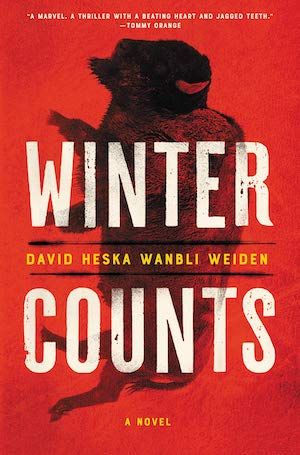
Winter Counts by David Heska Wanbli Weiden
I swear, you just can’t go wrong when you’ve got a protagonist named Virgil! Anyway, Winter Counts follows Virgil Wounded Horse, a vigilante for hire on the Rosebud Indian Reservation in South Dakota. He’s the guy people call when the U.S. legal system has failed to mete out true justice. But this time, his quest for justice is his own when his nephew gets caught up in the heroin epidemic. Winter Counts is a dynamic mystery, and caught up in that mystery are all kinds of huge dynamics: the failings of the U.S. justice system, the tensions between the settler-colonial state and Native American sovereignty, prejudice and racism…the list goes on. It’s a powerful read and a good story.
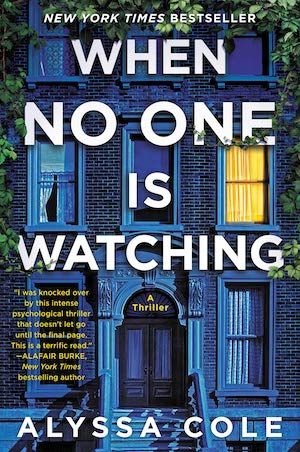
When No One is Watching by Alyssa Cole
Sydney Green is from Brooklyn, unlike all the smarmy white folks snapping up properties as gentrification spreads like a disease. While gentrification — and all its socioeconomic and racial aspects — is disturbing enough, Cole takes it further. This book has it all: conspiracies, racism, and the hottie next door. It’s a smart and compulsively readable book that will have you jumping at every little noise. And for what it’s worth, I thought I had the ending figured out…and I was wrong. The mystery Cole weaves in When No One is Watching is full of unexpected twists and turns.
Not scared yet?
Try the books on this list of missing people thrillers or take a look at these 15 mystery thrillers. Of course, maybe what’s really scary isn’t the books themselves, but some of the ideas they explore. In that case, you might want to read about recent feminist cozy mysteries by authors of color or how some YA mysteries and thrillers are resisting the dead girl trope.
Source : 8 Mysteries and Thrillers That Use Fear to Explore Racism













